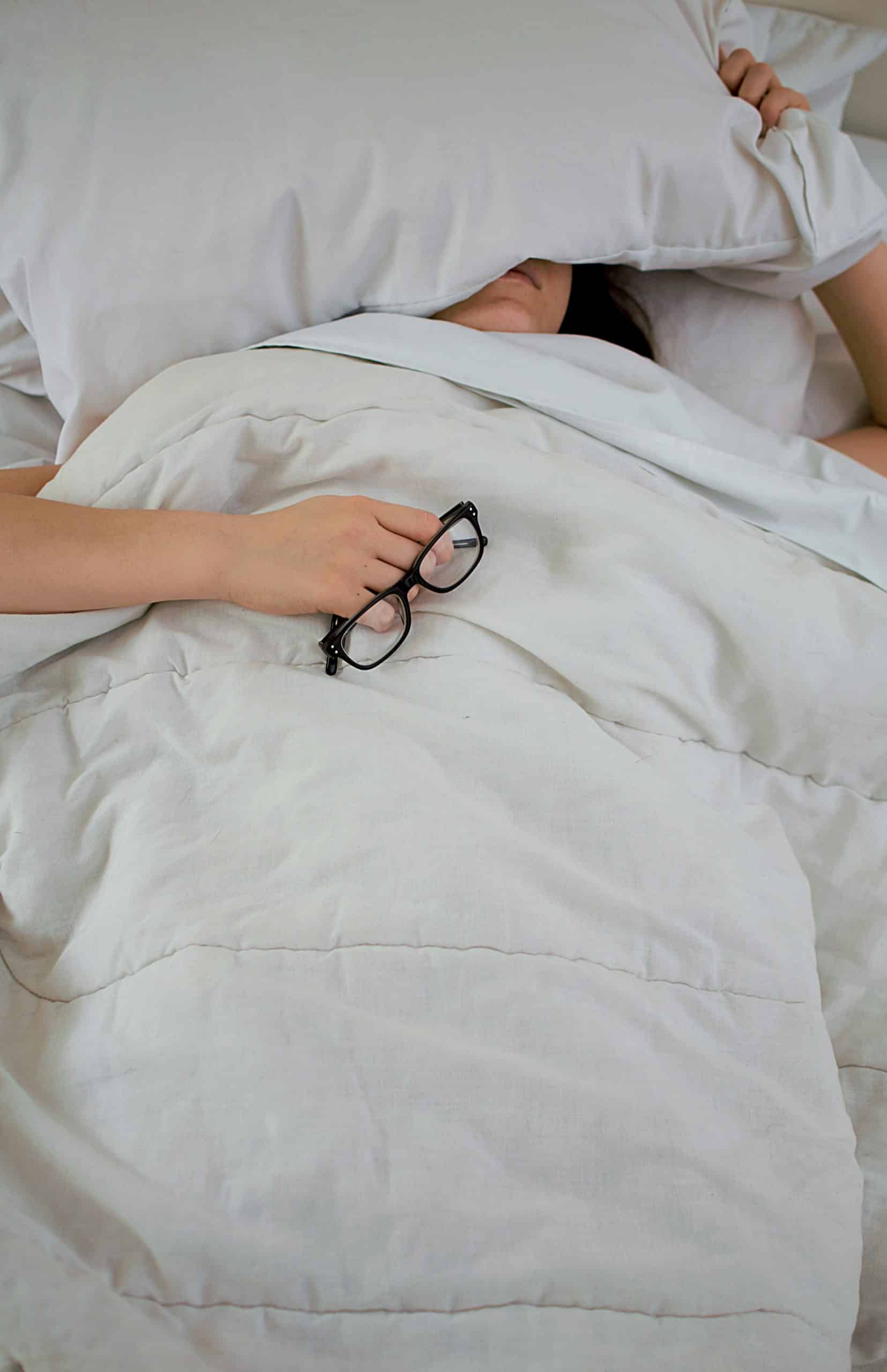What Are the Most Effective Sleep Aids for Seniors Experiencing Insomnia Due to Anxiety?

Insomnia, a common sleep disorder that can make it hard to fall asleep, has become a major health concern, particularly among seniors. Anxiety often exacerbates this condition, pushing patients into a vicious cycle that can be tough to break without proper intervention. Luckily, a variety of effective sleep aids and therapies can help seniors overcome this challenge. This article explores some of the most effective sleep aids for seniors experiencing insomnia due to anxiety.
Understanding the link between insomnia and anxiety
Before delving into the solutions, it's crucial to understand the relationship between insomnia and anxiety. Anxiety is a feeling of unease, such as worry or fear, that can be mild or severe. For many people, anxiety symptoms become intense at night, making it difficult to fall asleep. As the body's natural sleep hormone, melatonin production can be disrupted during periods of stress and anxiety, leading to irregular sleep patterns and insomnia.
A lire aussi : How Can Seniors Over 70 Optimize Their Cognitive Health with Specific Types of Brain Training Games?
Over time, the lack of sleep contributes to feelings of anxiety and stress, creating a vicious cycle that can be challenging to break. It's particularly prevalent among seniors who often have other health conditions or medications that can interfere with sleep patterns.
Benzodiazepines and their side effects
One widely used treatment for anxiety-induced insomnia in seniors is benzodiazepines, a class of drugs that includes medications such as Valium and Xanax. These medications work by slowing down the body's central nervous system, inducing a sense of calm and drowsiness that can help people fall asleep.
A lire aussi : How Can Seniors Effectively Manage Blood Pressure Through Mind-Body Techniques?
However, despite their effectiveness, benzodiazepines are not recommended for long-term use due to the risk of side effects and addiction. Side effects can include dizziness, confusion, and cognitive impairment, all of which can pose significant risks for seniors. Moreover, prolonged use of benzodiazepines can lead to dependence, making it challenging for patients to stop using them without experiencing withdrawal symptoms.
Natural sleep aids as an alternative
As a result of the potential side effects and risks associated with benzodiazepines, many seniors and their healthcare providers are turning to natural sleep aids. Melatonin supplements are one such alternative. Melatonin is a hormone that your body produces naturally, and it's involved in regulating your sleep-wake cycle.
Taking melatonin supplements can help adjust the body's internal clock and induce sleep, particularly in people whose natural sleep cycles have been disrupted. However, it's essential to note that while melatonin can help people fall asleep faster, its effects on sleep quality and duration are less clear.
Herbal remedies, such as valerian root and chamomile, are also popular natural sleep aids. These herbs have been used for centuries to promote relaxation and sleep, and some research suggests they may be effective in treating insomnia. However, it's always a good idea to consult a healthcare provider before starting any new treatment regimen, as even natural remedies can have side effects and interact with other medications.
Cognitive-behavioral therapy for insomnia
In addition to medications and natural remedies, cognitive-behavioral therapy for insomnia (CBT-I) can be an effective treatment for seniors experiencing insomnia due to anxiety. CBT-I is a structured program that helps you identify and replace thoughts and behaviors that cause or worsen sleep problems with habits that promote sound sleep.
Unlike medication, CBT-I addresses the underlying causes of insomnia, rather than just treating the symptoms. As such, it's often more effective in the long term. Research has shown that CBT-I can significantly reduce insomnia and anxiety symptoms, improving sleep quality and duration for many seniors.
It's also worth noting that CBT-I has no physical side effects, making it a safe option for seniors who may be sensitive to medications or prefer a more natural approach to their health.
Combination of treatments for better sleep
For many seniors, the most effective sleep aid may be a combination of treatments. This might involve a short-term course of medication to help break the cycle of poor sleep, coupled with long-term strategies like CBT-I and lifestyle changes to address the underlying causes of insomnia.
Lifestyle changes can include regular exercise, a healthy diet, good sleep hygiene, and stress management techniques such as mindfulness and relaxation exercises. These changes not only improve sleep quality but also have a positive impact on overall health and well-being.
Remember, everyone is different, and what works for one person may not work for another. It's essential to speak to a healthcare provider about the best treatment options for you. They can help guide you through the process and monitor your progress to ensure you're getting the most out of your treatment.
Sleeping Pills and Their Impact on Older Adults
Another commonly sought-after remedy for insomnia and anxiety in seniors is the use of sleeping pills. These are a category of sedative-hypnotic medications that include drugs like Zolpidem (Ambien), Eszopiclone (Lunesta), and Zaleplon (Sonata). They work by slowing down brain activity, promoting a state of relaxation and drowsiness that helps individuals fall asleep.
Sleeping pills can be highly effective in the short term, especially for those experiencing acute bouts of insomnia due to a temporary stressor or change in routine. However, like benzodiazepines, these medications come with risks. Potential side effects can include confusion, dizziness, dry mouth, and even complex sleep behaviors like sleepwalking. Additionally, some sleeping pills can cause physical dependence if used over a prolonged period, leading to rebound insomnia when the medication is stopped.
Furthermore, the effectiveness of sleeping pills can diminish over time as the body builds a tolerance to them. For these reasons, sleeping pills are typically recommended for short-term use under the supervision of a healthcare provider. Always discuss the potential risks and benefits of any sleep aid with a health care professional before starting a new medication regimen.
Conclusion: Achieving Better Sleep for Seniors with Anxiety
Insomnia due to anxiety is a complex issue for many seniors, but it's not insurmountable. There is a range of effective sleep aids and therapies available, from medications like benzodiazepines and sleeping pills to natural sleep aids and cognitive-behavioral therapy.
However, it's crucial to approach the issue holistically and not solely rely on one method. A combination of treatments, along with lifestyle changes, can bring about the best results. Regular exercise, good sleep hygiene, and stress management techniques can significantly improve sleep quality and overall health.
Research has shown that for many seniors, cognitive-behavioral therapy can be particularly effective in breaking the vicious cycle of anxiety and insomnia. Unlike many sleep aids, CBT-I treats the root causes of sleep problems and doesn't come with physical side effects.
Before starting any new treatment, always consult with a healthcare provider. They can help you weigh the benefits and risks of different treatment options, monitor your progress, and make adjustments as necessary. Remember that everyone is different and finding the right balance of treatments for you might take time, but with patience and persistence, achieving better sleep is possible.
And finally, remember that while sleep aids can offer temporary relief, they are not a cure for chronic insomnia or anxiety. If you or a loved one is struggling with these conditions, seek professional help. There are many resources available, including sleep medicine specialists and mental health professionals, that can provide the support required to manage these conditions effectively.
After all, a good night's sleep is not just about quantity but quality. It's about waking up feeling refreshed and ready to take on the day, and with the right support and treatment, this can be a reality for seniors battling anxiety-induced insomnia.
